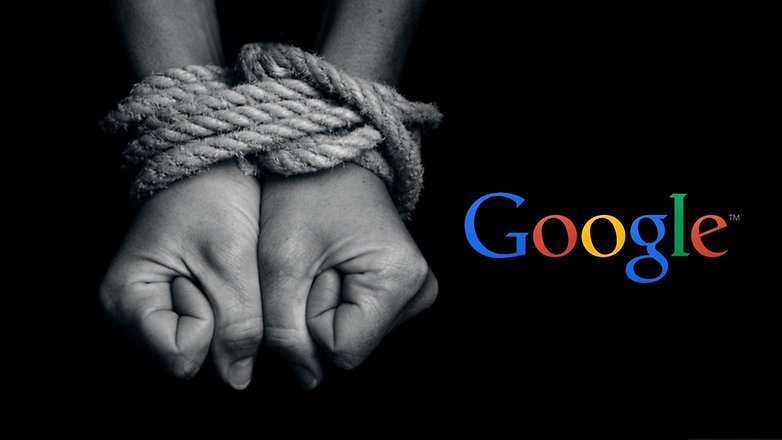Will California's new net neutrality laws survive?

Over the weekend California turned rebel state over the issue of net neutrality, with Governor Jerry Brown signing legislation into law based on the recently repealed Obama-era protections, setting into motion a legal confrontation that will see the state square off against Internet service providers and the US government.
The California state Assembly and Senate defied protests, AT&T and cable company lobbyists in order to approve these new rules similar to those previously enforced by the FCC before last year's repeal. Nationwide net neutrality officially died in June, but there is mounting resistance at the state level.
"While the Trump administration does everything in its power to undermine our democracy, we in California will continue to do what’s right for our residents," said California State Senator Scott Wiener, author of the net neutrality bill.
NET NEUTRALITY IS NOW THE LAW IN CALIFORNIA!
— Scott Wiener (@Scott_Wiener) October 1, 2018
Governor Brown just signed our #SB822, which contains the strongest #NetNeutrality protections in the nation. Huge win for an open internet. Thank you @JerryBrownGov! pic.twitter.com/mZa8l9qc16
This new California state law effectively bans Internet service providers from blocking or throttling lawful traffic and from charging particular websites or services for faster connection speeds. The law also prohibits paid data cap exemptions (AKA "zero-rating"). Under the state regulation, ISPs may not attempt to evade net neutrality protections by slowing down traffic at network interconnection points.
As you can imagine, the FCC isn't too happy about this. In moving to enforce its own net neutrality rules, California has thrown itself into a battle with not just the FCC and internet operators, but the full force of the Trump administration which is determined to uphold the repeal.
FCC, Justice Department move against “illegal” legislation
The FCC's original repeal of federal net neutrality rules anticipated this kind of state intervention, and said that states aren't allowed to impose their own regulations. FCC Chairman Ajit Pai hasn't minced words, calling the California net neutrality bill "illegal."
On Sunday night, the US Department of Justice officials filed a lawsuit against California to block the new rules. Attorney General Jeff Sessions released the following statement:
"Under the Constitution, states do not regulate interstate commerce—the federal government does. Once again the California legislature has enacted an extreme and illegal state law attempting to frustrate federal policy. The Justice Department should not have to spend valuable time and resources to file this suit today, but we have a duty to defend the prerogatives of the federal government and protect our Constitutional order. We will do so with vigor. We are confident that we will prevail in this case—because the facts are on our side."
California's case will test the various definitions of online services in court. For example, the FCC's repeal classified broadband as an information service instead of a telecommunications service. Pai's argument is that states cannot regulate information services. On the other hand, supporters of state laws counter that the FCC has effectively abandoned regulatory authority over broadband, thus allowing state authority to step in.
California isn't the only state that thinks so. The attorneys general of 22 states and the District of Columbia filed a brief to a US Appeals Court to reverse the FCC's move back in August, and will be watching and supporting California's situation.

It's not just government groups fighting over net neutrality, private corporations are also involved. Groups such as The Internet Association, Entertainment Software Association, the Computer & Communications Industry Association and the Writers Guild of America have mounted legal challenges to the FCC. These groups have the backing of deep-pocketed Internet giants such as Alphabet, Facebook and Amazon. On the other side, lobby groups for AT&T and Verizon are also throwing their money into the ring.
Can California go at it alone?
As it stands, it's too early to tell whether California can stand alone as a bastion of Internet freedom in the United States. But the state's bold stance could encourage other states and lobby groups that the FCC's unpopular repeal can still be rolled back.
Rather than a confusing patchwork of differing regulation across the states, a nationwide solution that cuts down on red tape and works best for ordinary Americans would be ideal. California has won a small victory, but it's only a shot fired in a more protracted conflict, as the ongoing legal struggles show the net neutrality war is far from over.
What do you think about net neutrality regulation? Should the states be allowed to adopt their own laws? Would the US as a whole benefit more or less from net neutrality?
Source: The US Department of Justice




I hope the Court sides with California and the other states
I've thought that the industry is not going to be in a flaming rush to spend and contract for billions, reconfiguring itself on rules that might not survive the next presidential election. If nothing else, California's rules and litigation will keep (as we say in Canada) "ragging the puck" until American voters decide if they want more of this Republican stuff. A Trump reelection, and only then will preferential bandwidth really hit the fan.
I love how some people don't want the government interfering in their life then they say this is ok. It's not up to us how a provider should price data.
The case precedent is on Californias side. And I think Pai is agenda driven enough not to pay attention to crafting strong regulations. Just like his boss.
Not really. The FCC is a federal agency and providers don't want to have to play by two sets of rules. One with government overreach, so called net neutrality and market forces.